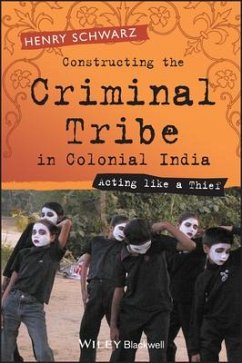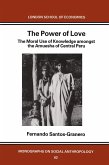Constructing the Criminal Tribe in Colonial India provides a detailed overview of the phenomenon of the criminal tribe in India from the early days of colonial rule to the present. Tracing and analyzing historical debates in historiography, anthropology, and criminology, Henry Schwarz argues that crime in the colonial context is used as much to control subject populations as to define morally repugnant behavior. Crime thus becomes the foil of political legitimacy under military conquest. By the end of British rule in India, almost two hundred tribes had been criminalized, comprising four million people. Today some sixty million people still labor under the stigma of this criminal inheritance. In this new study, Schwarz explores the popular movement that has arisen to reverse this discrimination, producing a radical culture that contests stereotypes to reclaim humanity.
"Henry Schwarz's well researched account of the notions of crime and criminal communities given currency during the British colonial rule in India presents the whole spectrum of the darkest side of colonialism. His discussion of Budhan Theatre's intervention in this great human tragedy reaasures one that art still has a purpose in our time." Ganesh Devy, Founder, Dentified and Nomadic Tribes Rights Action Group"This book is an important contribution to studies of minority subjectivity, colonial discourse and social policy in India. Henry Schwarz, a literary and cultural critic of distinction, sustains an engaging dialogue between academic enquiry and socio-political activism. The lucid text invokes forms of subaltern performance to frame an interrogation of colonialist knowledge, as pertaining to the so-called De-Notified Tribes, in myriad historical and ideological contexts." Dr Daniel J. Rycroft, Lecturer in Asian Arts and Cultures, School of World Art Studies, University of East Anglia, Author of Representing Rebellion: visual aspects of counter-insurgency in colonial India (2006)








